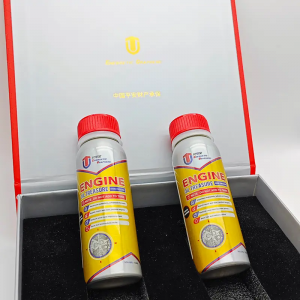The development of graphene-based engine oil additives promises to revolutionize the automotive and industrial lubricant industries. Graphene is a two-dimensional carbon allotrope with excellent mechanical strength, thermal conductivity and lubrication properties, making it ideal for improving engine oil performance and life.
Graphene engine oil additives have the potential to significantly improve the lubrication and protection of internal combustion engines, gear systems and industrial machinery. Graphene’s unique structure enables it to form a strong, low-friction layer between moving parts, reducing wear and friction losses. This can improve fuel efficiency, reduce maintenance costs and extend equipment life, making graphene-based additives an attractive prospect for various industries.
Additionally, graphene’s thermal conductivity allows for better heat dissipation within the lubrication system, helping to enhance thermal stability and reduce operating temperatures. This is particularly beneficial for high-performance engines and heavy machinery, where thermal management is critical for optimal performance and reliability.
The development of graphene engine oil additives is also in line with the industry’s growing focus on sustainability and environmental responsibility. By reducing friction and wear, these additives have the potential to minimize energy consumption and extend the life of mechanical components, ultimately helping to lower carbon emissions and reduce environmental impact.
Additionally, continued research and innovation in graphene technology is driving advancements in graphene-based lubricants and additives, allowing the development of customized solutions for specific applications and operating conditions. As knowledge of graphene's properties and applications continues to expand, there is growing recognition of the potential of graphene engine oil additives to meet the changing needs of modern machinery and transportation systems.
In conclusion, the development of graphene engine oil additives is promising due to the material’s excellent properties and potential to enhance lubrication, reduce wear, improve mechanical system efficiency and sustainability. As research and commercialization efforts continue, graphene-based additives are expected to play an important role in shaping the future of lubricant technology and promoting more efficient and environmentally friendly industrial practices.

Post time: Aug-16-2024









